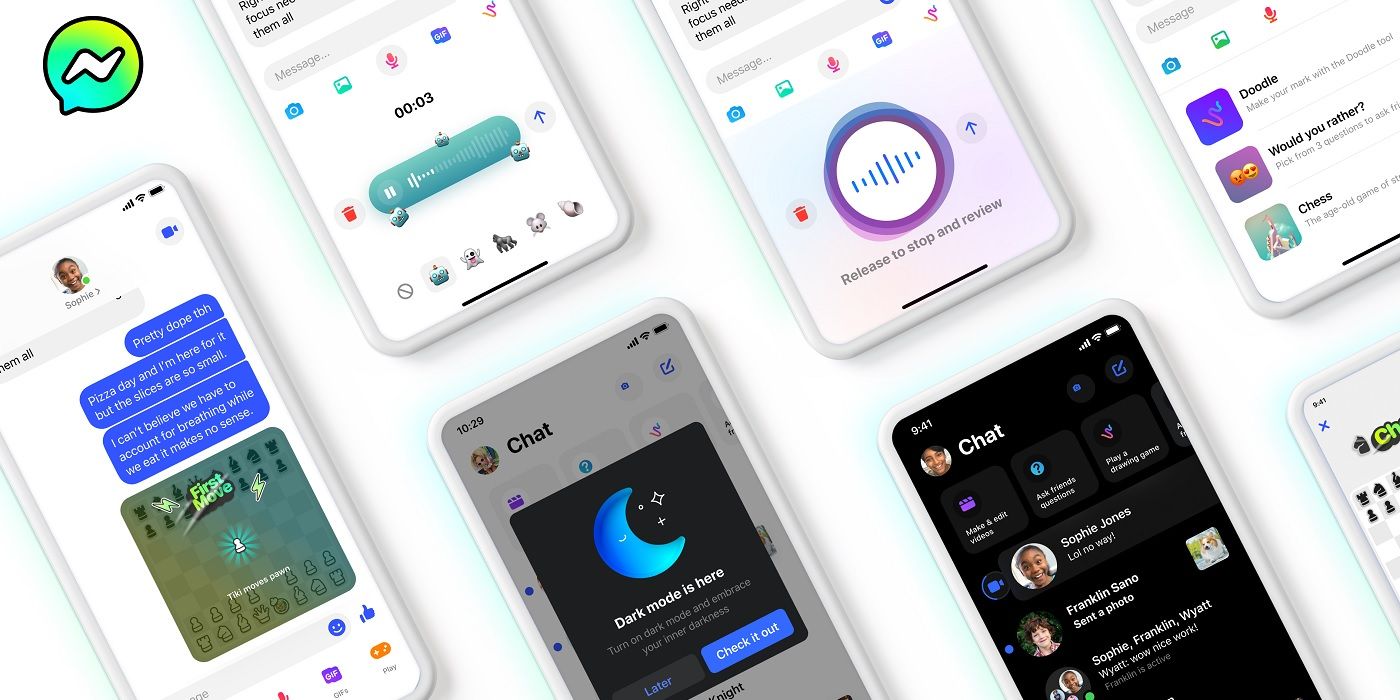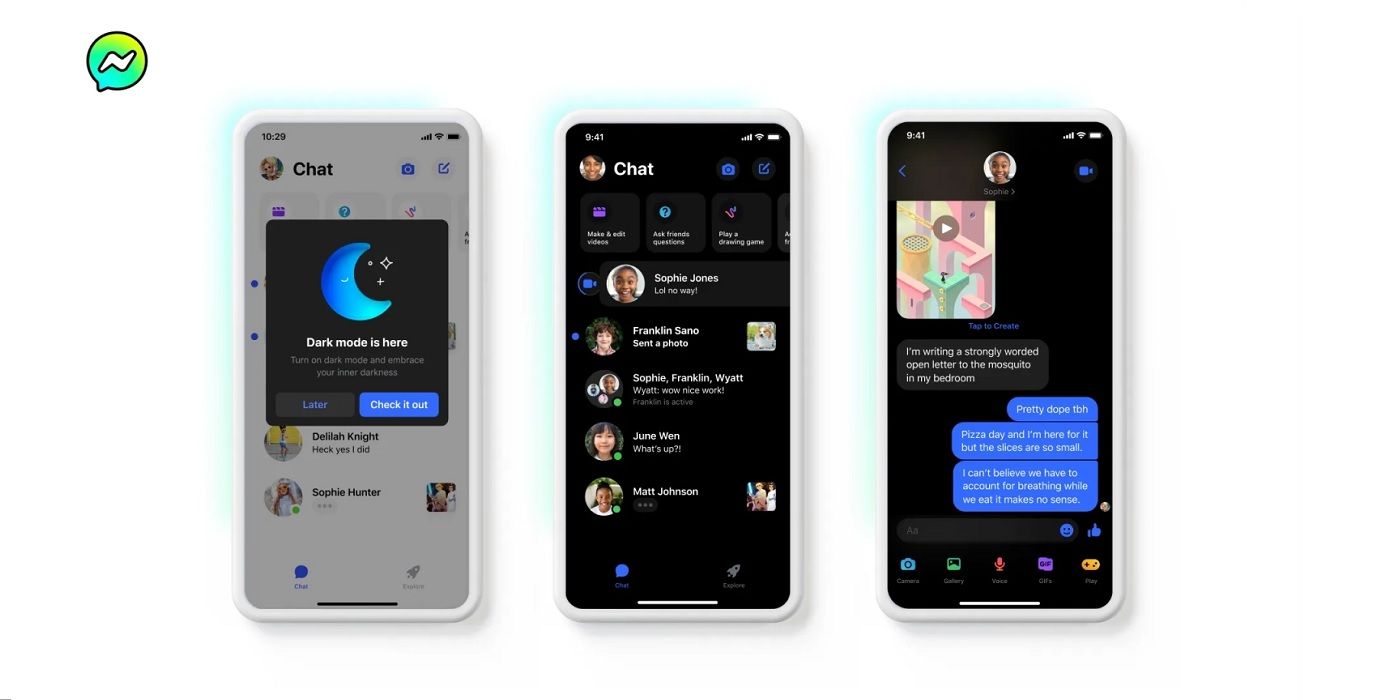Messenger Kids by Facebook is getting in-chat two-player games, a Dark Mode, and effects for voice messages. Even though Facebook has been the subject of a number of data security and privacy concerns, it has not stopped the company from seeking out new users and especially ones for the future. This is partly why, in 2017, Facebook launched Messenger Kids, allowing parents to oversee children's conversations and control contact lists.
Over the years, Messenger Kids has gained functionality similar to the original Messenger app. Last year, the social media giant rolled out a massive redesign to the Kids app to make it look more like the the main app. The latest update adds a few more features to increase this resemblance and ensure the app continues to be used. Messenger isn't the only solution Facebook has explored to attract younger users to its platforms, with a (now paused) kids-only version of Instagram also in development.
Among the features announced by the Messenger team, one that is likely to gain the most traction is the availability of games within chat threads on the mobile app. With this, kids will have the ability to start two-player games like Chess and "Would You Rather?" by tapping the orange button that looks like a gaming controller. In addition to games, Messenger Kids is also getting voice effects allowing kids to sound like a ghost, a gorilla, a mouse, a robot, or as if their voice is coming from inside a seashell. Kids will be able to test the outcome of these audio modifications before sending a voice message to their peers or family members.
Messenger Kids Also Gets A Dark Mode
Messenger Kids is also getting an app-wide dark mode, bringing it on par with the standard Messenger app. The feature can be useful for kids who tend to use the app after sunset, and especially in a dark environment or before going to bed. As of now, all of these features are limited to the iOS version of Messenger Kids, with the Android app slated to receive them as part of future updates. The blog post does not specify geographical limitations and that should imply global availability.
With these new features, Meta — previously Facebook — appears to be making it as easy as possible for users to graduate to the main Messenger app — or perhaps, learning usage pattern to help reverse its waning teen user base. According to The Wall Street Journal, the number of younger Facebook users has reportedly fallen 19-percent in the last two years and could fall an additional 45-percent in the next two. These patterns pose a concern for Facebook/Meta and especially since apps like Snapchat have seen positive growth with teen users. To fight back, Facebook was found to be experimenting with features like playdate matching as well as studying kids younger than four years of age, according to the same report.


